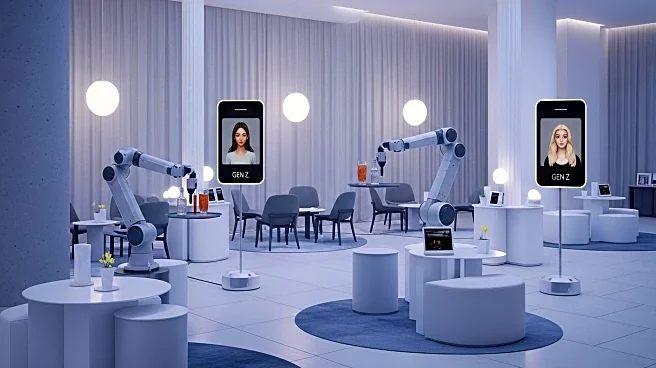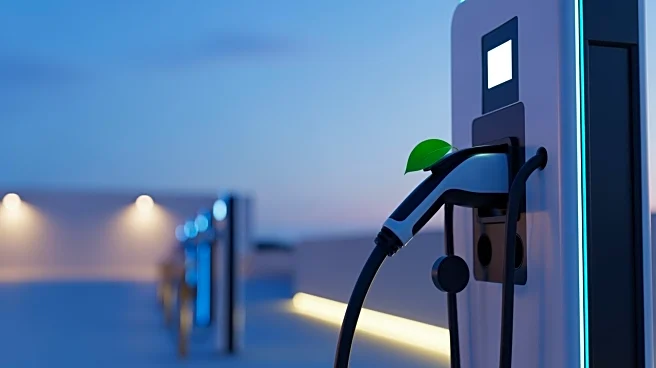What is the story about?
What's Happening?
The hospitality industry is experiencing a significant shift as younger generations, particularly Gen Z and Gen Alpha, show a preference for minimal human interaction during their travel experiences. This trend is driven by years of asynchronous communication and technology-mediated interactions, which have altered the traditional expectations of hospitality. The American Customer Satisfaction Index and J.D. Power have reported a decline in service quality, reflecting this change in consumer expectations. The concept of 'zero staff contact' is becoming a desirable feature, akin to amenities like 'late checkout' or 'sea view'. This shift suggests a move towards a hybrid hospitality model where technology handles routine tasks, allowing human interaction to focus on creating authentic connections.
Why It's Important?
This development has significant implications for the hospitality industry, as it challenges the traditional model of service that emphasizes personal interaction. Businesses that adapt to these changing preferences may gain a competitive edge by offering customizable experiences that cater to both those who prefer minimal human contact and those who seek personalized service. The trend also highlights a broader societal shift towards automation and the potential for reduced employment in service roles. As technology continues to advance, the industry must balance efficiency with the human touch to meet diverse consumer needs.
What's Next?
The hospitality industry is likely to see further integration of technology to accommodate these preferences. Companies may invest in AI and automation to streamline operations and enhance customer experiences. This could lead to a reevaluation of staffing needs and the roles humans play in service delivery. Additionally, businesses may explore new ways to offer premium services that emphasize human interaction as a luxury, catering to those who value personal connections. The industry will need to navigate these changes carefully to maintain customer satisfaction and loyalty.
Beyond the Headlines
The shift towards humanless hospitality raises ethical and cultural questions about the role of technology in human interactions. It challenges the notion of hospitality as inherently human-centric and prompts a reevaluation of what constitutes quality service. As automation becomes more prevalent, there may be concerns about data privacy and the potential loss of jobs. The industry must consider these factors as it adapts to changing consumer preferences and technological advancements.















